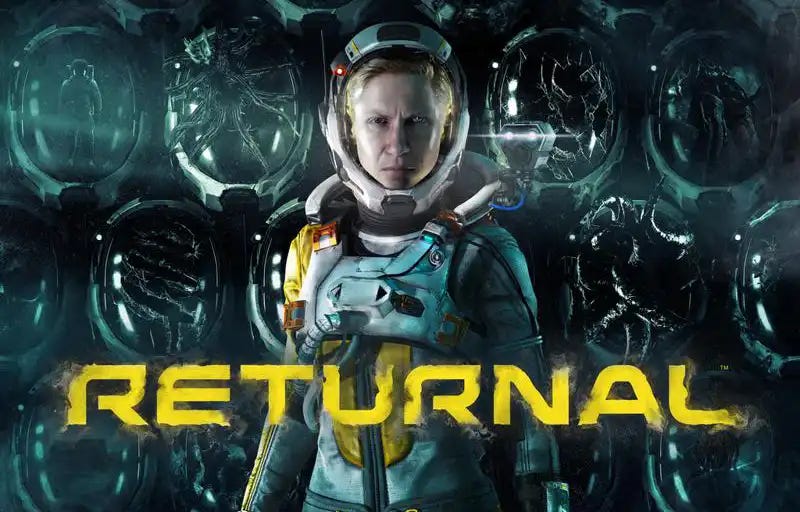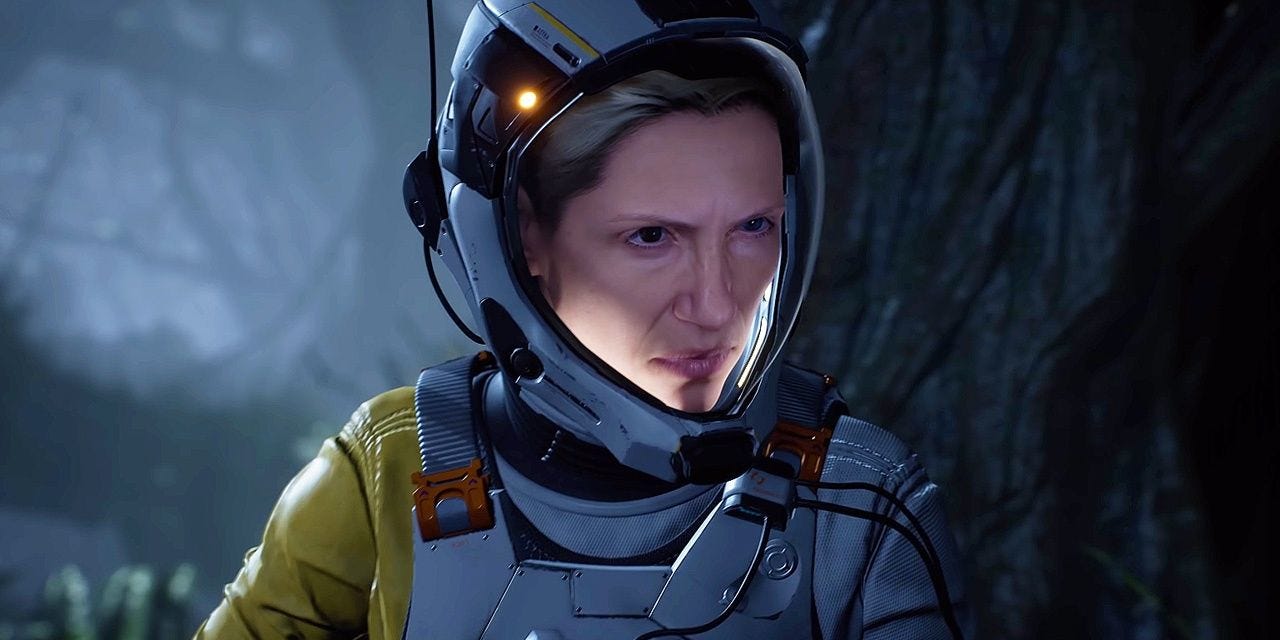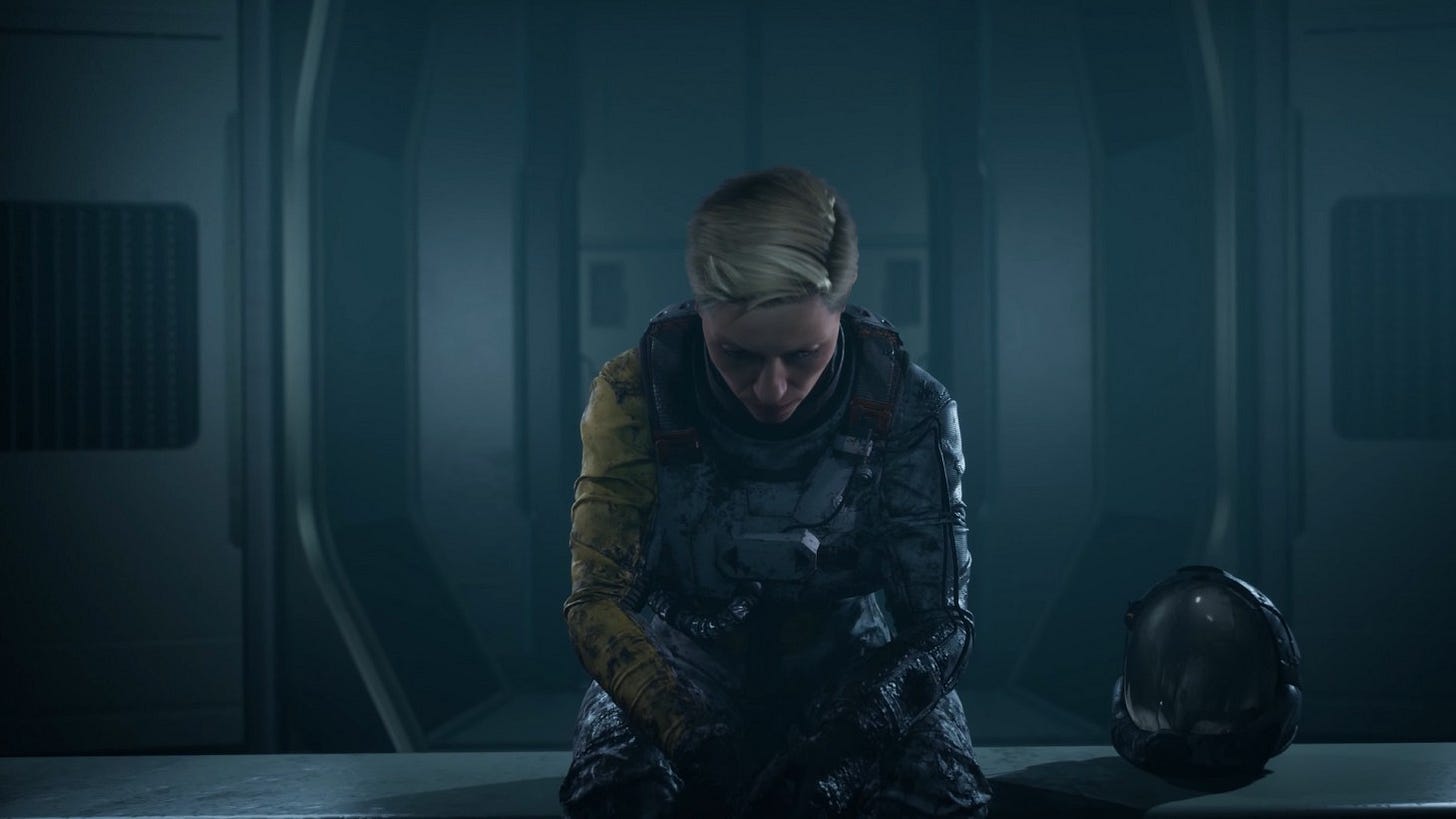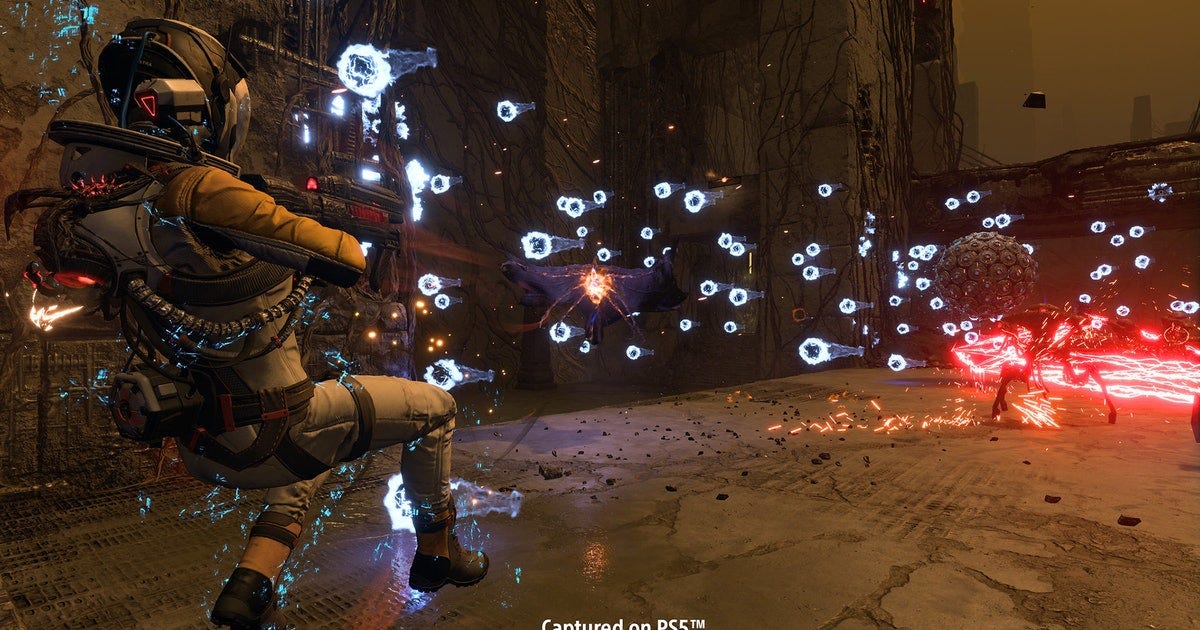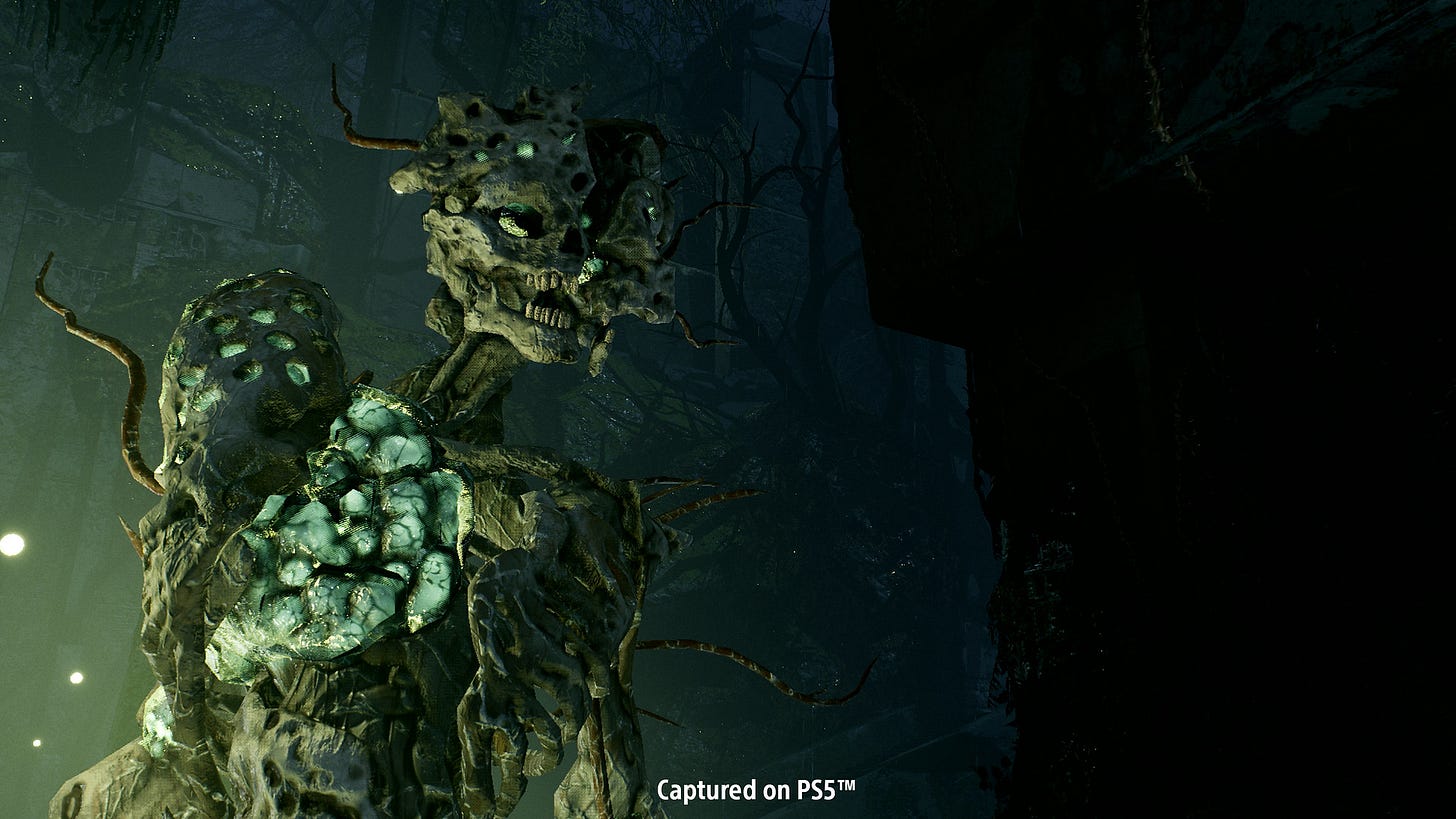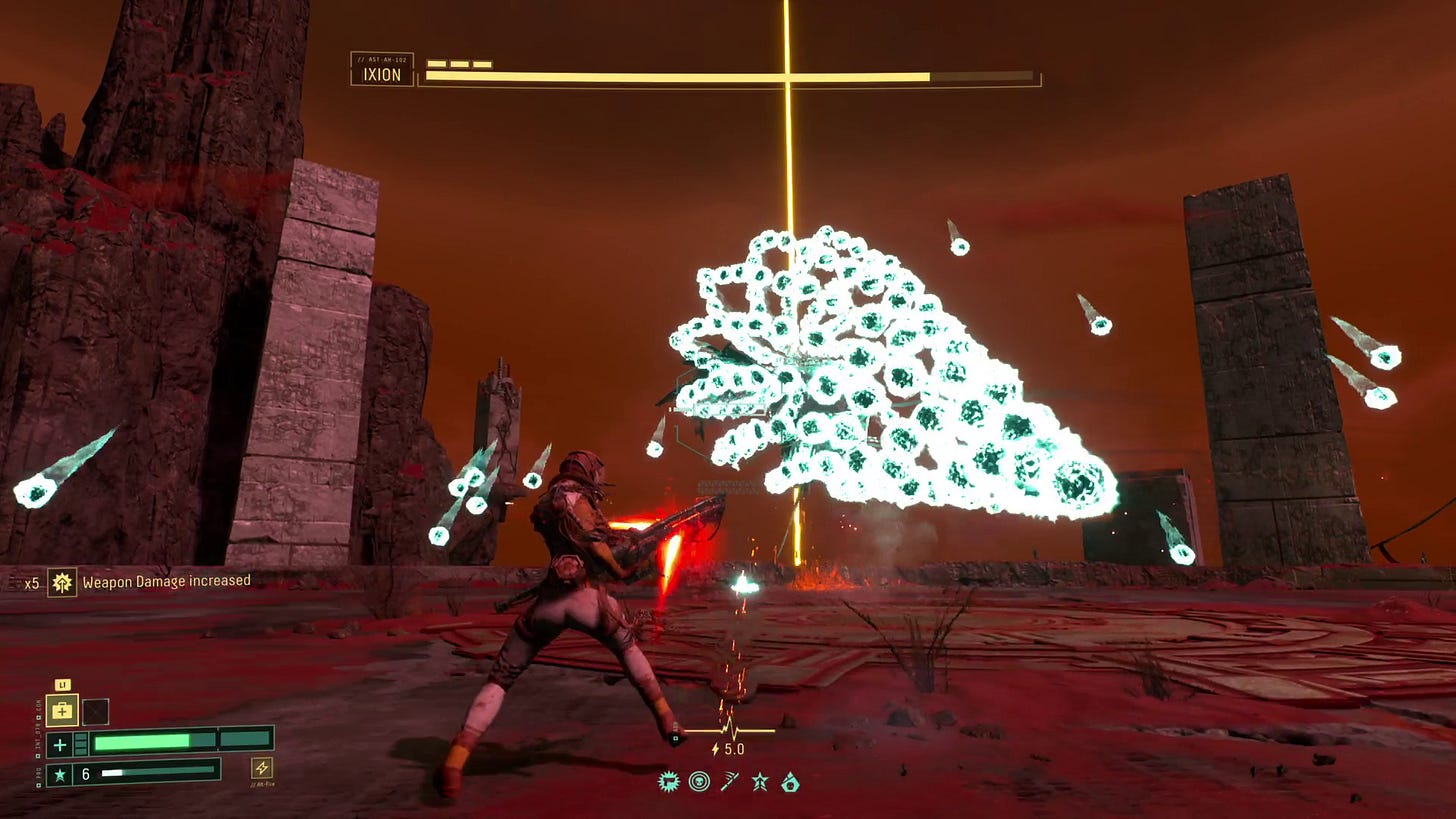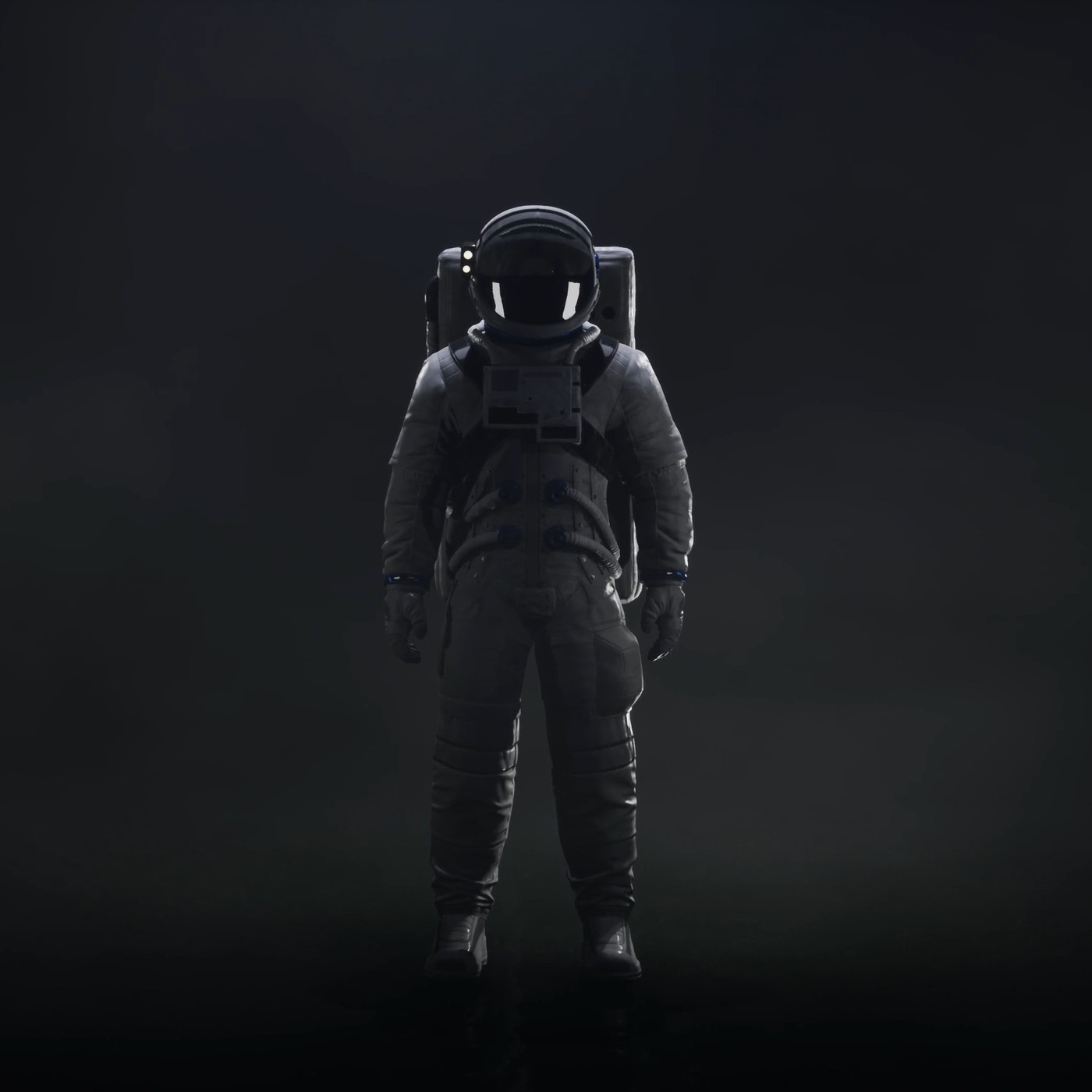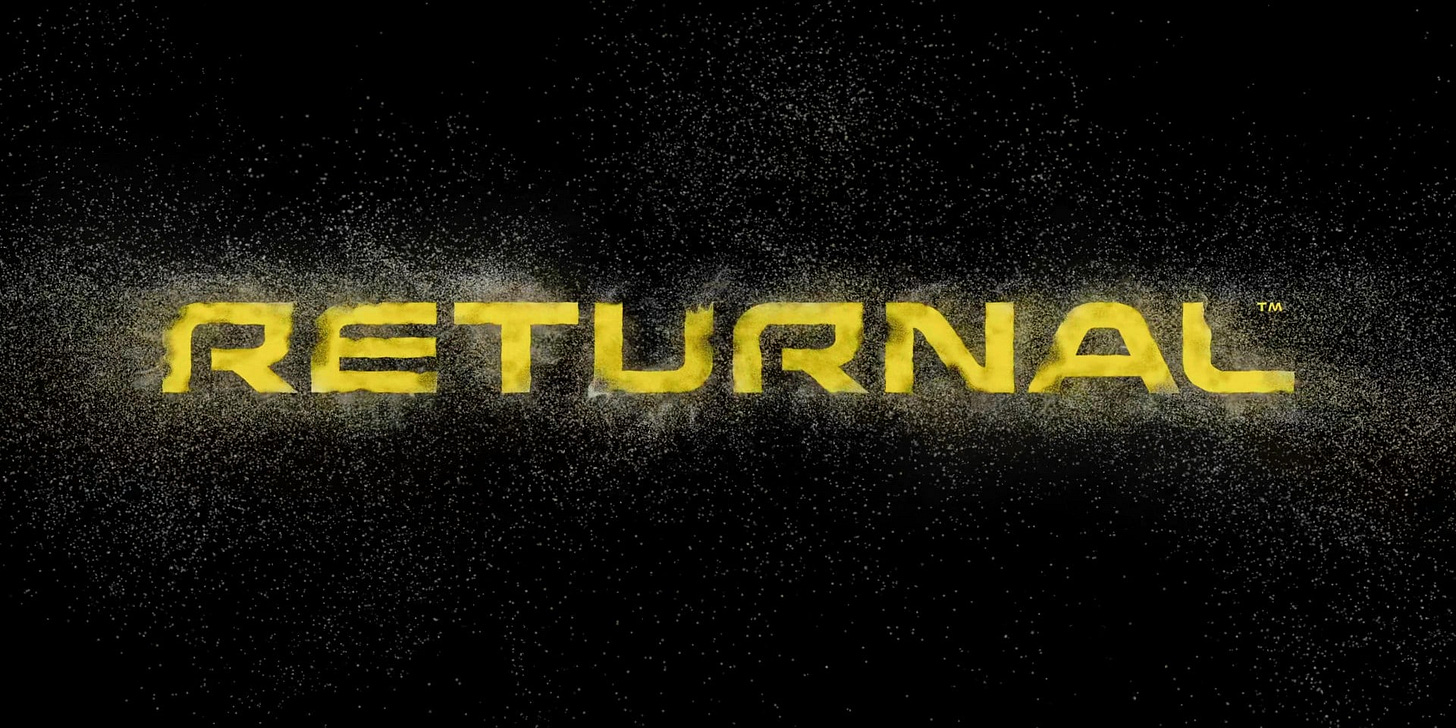Returnal Review
A fantastic roguelike guarded behind a high barrier to entry
At points, it seemed like it was a near-impossible task, but I finally beat Returnal. This game was a unique beast that I gained a lot of appreciation for by the time I had reached the credits. It comes packaged with exhilarating combat, interesting levels, and a mysterious story. While Returnal is certainly not for everyone, I ended up enjoying it much more than I initially expected. The (now PlayStation-owned) studio Housemarque deserves a lot of praise for how they were able to evolve the roguelike genre with their latest project.
What Kind of Game is Returnal?
Returnal is about a space cadet, Selene, who crash-lands on a strange planet inhabited by deadly aliens. She fights to get off the planet, but every time she dies, she wakes up right where she began, at the beginning of her crash.
Selene encounters many bizarre-looking, Lovecraftian (Am I using that right?) creatures on her journey. These hell beasts spew what seems like an endless stream of colorful attacks you must dodge while fighting them. Armed with just a pistol, melee attack, and suit dash, you must shoot your way through countless areas of enemies in search of better weapons and items to help you survive the nightmarish planet Helios.
The game is a roguelike, which means each time you die, you essentially start at the beginning of the game (also known as a run). While there are a few things that carry over each run, Returnal doesn’t do much to help struggling players. You lose all of your weapons and consumable items from your previous runs, there are no permanent stat boosts, and the level layouts you fought through get randomly re-generated, effectively leaving you to start at square one.
Returnal is Merciless
I’m going to be honest, I didn’t like Returnal at first. Every moment of it stressed me out, and it felt like a chore to play. As bad as I'm making it sound, it eventually clicked with me. But before I explain how I got to that point, let me talk about my biggest complaint with the game.
Now I know what you may be thinking. He’s going to complain that the game was too hard. He’s going to cry that there was no easy mode. He’s a big baby boy. While you are correct, I’m a big baby boy, it’s not for the reasons you’re assuming.
Yes, the game was hard, but I’ve played plenty of difficult games that I’ve enjoyed. My biggest problem actually turned out to be the pacing of the runs. For a while, it really felt like the game was designed without consideration of anyone's time.
Like I mentioned before, when you die, you lose pretty much everything with almost nothing to show for it. There are very few checkpoints and shortcuts in the game, and you’ll have to fight hard to earn every single one of them.
Imagine playing for over an hour, getting ten sentences of story-related dialogue (if you’re lucky), then dying, loading back into the first area of the game, and having to do that over and over and over again. Sure, it fits with the theme of the game quite well, but it gets very annoying.
Returnal is not like other games where you may be stuck on a boss, you die, you respawn five or so minutes away from the fight, and you go back to try again. There are points where it may take you 30 or more minutes just to prepare and get back to the boss fight, and there’s a decent chance you might die on the way.
There is one area specifically that is home to what I think most people would agree is the hardest boss in the game. I also thought this area had the most annoying and difficult standard enemies in the game. This level is a real gauntlet. Right before you make it to the boss, you have to climb up this Legends of the Hidden Temple/Tower of Terror style area with a dozen booby traps and a huge fight at the end. Well, imagine my face when I learned that once I died in the boss fight, I had to fight my way through several rooms and climb this dumb tower again just to get back to the fight.
I did this enough times that this section alone was justification enough to knock a point off my score for this game.
What’s worse is that when Returnal was first released, there was no way to save the state of your game. You just had to rely on your PS5’s sleep function. This means that if the game auto-updated or your system got powered off during the middle of a run, you were just out of luck. Months later, they added a suspend feature, but I can’t imagine how many players bounced off in frustration before then.
If you are the type of person who doesn’t like hard games, stay away, because this one is worse than the others. The amount of time you can waste getting nowhere in this game is absurd. I wouldn’t recommend this to a casual player with limited time if they didn’t think they were up for the challenge.
The Brilliance of Combat
So why did I continue playing a game that didn’t immediately click for me? Well, for one, it was getting a lot of game of the year buzz, so I wanted to give it its fair shake. More importantly, I was able to find the time to sit down for a couple of hours and really learn the strategies for success. That made the game a lot more enjoyable for me; in fact, I actually started craving it.
When a game is this hard, the gameplay mechanics have very little room for error. If any particular aspect of the game feels unfair or sloppy, it can make for a terrible experience. That being said, Returnal actually has a fantastic combat system.
This is one of those games that is so fine-tuned that when you die, you almost always understand what you could have done better. It rarely ever feels like the game screwed you (besides putting you in some very tough impromptu fights).
The dash mechanic felt just fast enough, the guns (read “some guns” in my case) felt just strong enough, and the items felt just useful enough to get me through some very daunting battles.
Alongside your weapon, you can also find different augments that strengthen and or weaken your character. Personally, I felt like the risk-reward system felt a little unbalanced. I skipped over a ton of items entirely because I didn’t want to deal with the possibility of a negative effect ruining my run. Luckily, you can spend the currency you get from defeating enemies to buy stat boosts and items at different shop-like areas throughout the game.
By the time I had reached the end, I felt like I was fully immersed in the rougelike experience. I understood the systems to the point where I was able to do my best Dr. Strange impersonation and figure out the one build that would give me the most success.
Enemies or Deadly Abstract Light Shows?
I called the enemies “Lovecraftian” earlier because they’re so hard to describe. The enemy variants ranged from weird four-legged dogs, to annoying drone robots, to weird tentacle spaghetti monsters. To be honest, a lot of the designs themselves left me wanting more.
The levels and art styles were interesting, but I didn’t really love the theme of Helios. The monsters were weird-looking and felt devoid of any real exciting backstory.
Where the enemies really shone was in their abilities. Every enemy brought their own challenge. Attack patterns for the standard enemies were relatively simple, but large swarms of several different enemy types would get hectic.
Almost every enemy featured some ranged attack that could consume the screen with deadly (and colorful) orbs and rings. Lots of fights definitely felt overwhelming on the eyes, but when I was locked in and dodging everything, I always felt a rush of energy.
The bosses took that feeling and amplified it tenfold. Like with most of these types of games, the bosses were my favorite part. The series of attacks that they constantly threw at me was just as beautiful as they were deadly. Fights that seemed impossible to keep up with at first somehow felt like they were playing out in slow motion when I was at the top of my game. They had a certain rhythm to them that eventually just felt natural.
The Driving Force
In Returnal, everything is a mystery. Who is Selene? What is Helios? How did we get here? What is the signal our suit is tracking? What the hell is up with that astronaut? It really felt like there were twenty questions for every one answer.
Now, some background on me, I love a mystery. I love putting together the pieces of a story to reveal the bigger picture at the end. I love endings that leave a tiny bit of wiggle room for personal interpretation. That’s a big reason why I absolutely loved the world of Control.
But the mystery of Returnal didn’t really work for me. There were points where I was really interested, but by the end, I had lost a ton of motivation to uncover the truth behind what was actually going on in the game.
Everything was just too abstract and symbolic. The enemies were abstract. The environments were abstract. The alien texts and translations you find were abstract. The major story beats and cutscenes were abstract. The only things that weren’t overly abstract were the audio logs you’d find from Selene, and she almost always sounded as confused as I felt.
They just made it way too difficult for the average person to parse through the story. By the end of the gam,e some things were cleared up, but not enough to justify all of the theatrics they pulled with the lore in my opinion.
Since I felt like the story progression was a bummer, the driving force for me became the challenge. What area were they going to throw at me next? What will the next boss have in store for me? What will the game do for its big send-off?
The game did a great job at upping the ante with each new level. The enemies got harder, their attacks got more complicated, and the areas got more treacherous. It was this constant push and pull of frustration and empowerment that I have only felt in games like Sekiro and Cuphead. Something that I think Housemarque should be applauded for getting right.
The Final Verdict
PlayStation has once again done what many other publishers have struggled with for years. They have added another creative IP into their exclusive stable of quality franchises. Returnal is the first of its kind. A third-person, over-the-shoulder, action/adventure shooter, mixed with a bullet-hell, rougelike. It’s an unexpected mutation of genres that turned out brilliantly. I know I may have sounded down on it at different points in this review, but in the end, I came away feeling very satisfied.
The core gameplay is where this game shines. I can easily forgive most of my issues with the game when I get one of the most polished combat systems I've ever gotten to play with. I wish I could wax poetic about it for several more paragraphs, but it would be a waste of my time. To truly understand what I mean, you'll need to play it for yourself.
I can forgive, but I can't forget. I felt like this game sports some unbalanced roguelike mechanics. The runs felt like they were holding me hostage at points, and the risk-reward systems in place scared me away much more often than they enticed me. Couple that with its very abstract story, and I feel like some of its biggest selling points fell short in ways I wasn’t expecting.
For me, this game lands at an 8. I had a great time with it, but there were some clear weaknesses in the overall package that kept haunting me during my playthrough. For a brand new IP with a very unique and ambitious concept, I think the team at Housemarque should be very proud of what they've done. I’m now extremely optimistic about whatever they do to follow up on the unexpected thrill that was Returnal.


